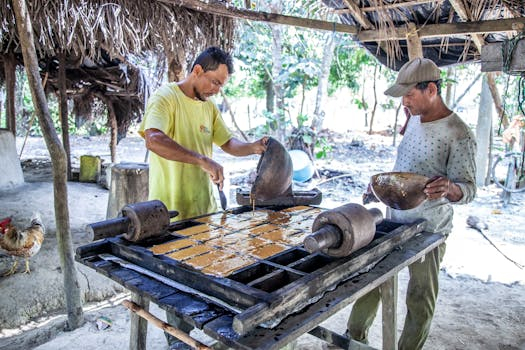Community Kitchens: Shared Spaces for Sustainable Cooking
The world is facing a crisis of sustainability, and one of the major contributing factors is the way we consume and prepare our food. With the growing concerns over climate change and the depletion of natural resources, it has become imperative for us to adopt more sustainable practices in our everyday lives. Community kitchens, also known as shared kitchens, have emerged as a promising solution to this problem. These communal spaces provide a platform for individuals to come together and cook in a sustainable manner while promoting a sense of community. In this article, we will explore the concept of community kitchens and how they are fostering sustainable cooking practices.
What are Community Kitchens?
Community kitchens are shared cooking spaces where people can gather to cook, learn and share meals. They bring people from diverse backgrounds together, providing an opportunity to connect while sharing and learning about different cultures and cuisines. These kitchens are equipped with all the necessary tools and ingredients, allowing individuals to cook and experiment with various recipes that they may not have access to otherwise.
Promoting Sustainable Cooking
One of the primary aims of community kitchens is to promote sustainable cooking practices. Most of us are unaware of the environmental impact caused by our food choices. From the production, packaging, and transportation of food, each step in the food chain contributes significantly to carbon emissions. Community kitchens provide a platform to educate individuals about sustainable food choices and cooking techniques that can help reduce the carbon footprint.
Reducing Food Waste
The issue of food waste is a significant contributor to the global sustainability crisis. According to the United Nations, approximately 1.3 billion tonnes of food is wasted every year, while millions of people still go hungry. Community kitchens play a crucial role in addressing this problem by promoting a sharing and caring attitude towards food. Individuals can come together, cook in bulk, and share meals, thus reducing food waste and ensuring that everyone has access to nutritious food.
The Benefits of Community Kitchens
Community kitchens offer numerous benefits, not just for individuals but also for the community as a whole. Some of these benefits include:
Promoting Social Connections
In today’s fast-paced world, it is easy to feel isolated and disconnected from others. Community kitchens provide a safe and welcoming space for individuals to connect with one another, fostering a sense of belonging and social support. They also encourage intergenerational connections, bridging the gap between older and younger generations through a shared love for food.
Encouraging Skill Sharing and Learning
Community kitchens provide an opportunity for individuals to learn and share cooking skills and techniques. These skills can be valuable in fostering self-sufficiency and promoting sustainable cooking practices in the long run. They also allow individuals to experiment with diverse cuisines and learn about different cultural traditions.
Promoting Healthy Eating
Community kitchens often focus on using locally-sourced, organic, and seasonal produce in their cooking. This not only supports local farmers and reduces the carbon footprint but also promotes healthier eating habits. Moreover, cooking and sharing meals together can also have a positive impact on mental and emotional well-being.
Conclusion
Community kitchens are an excellent example of how small changes in our daily lives can have a significant impact on the environment and society. By promoting sustainable cooking practices, reducing food waste, and fostering social connections, these shared spaces are helping to build more resilient and sustainable communities. So why not join a community kitchen near you and start cooking towards a greener future?










